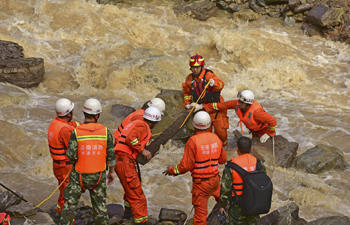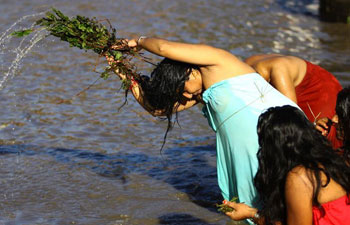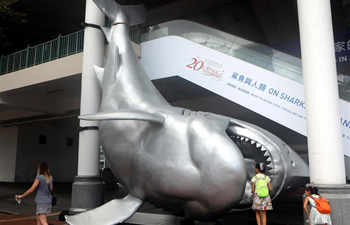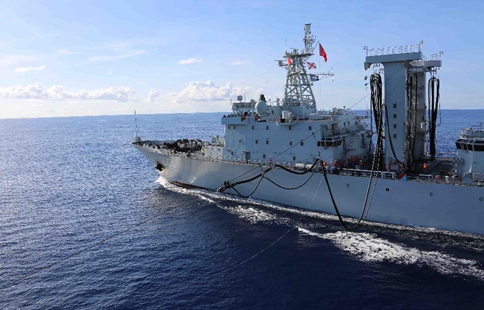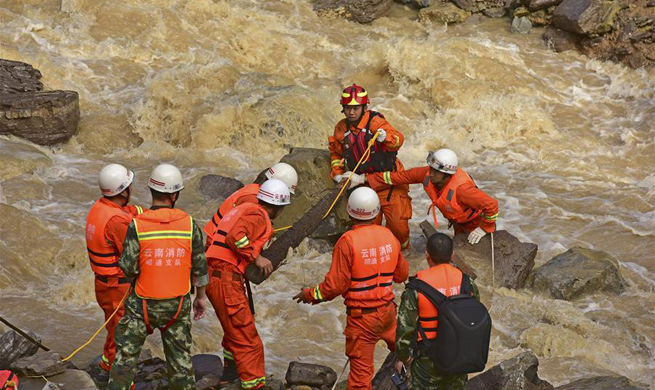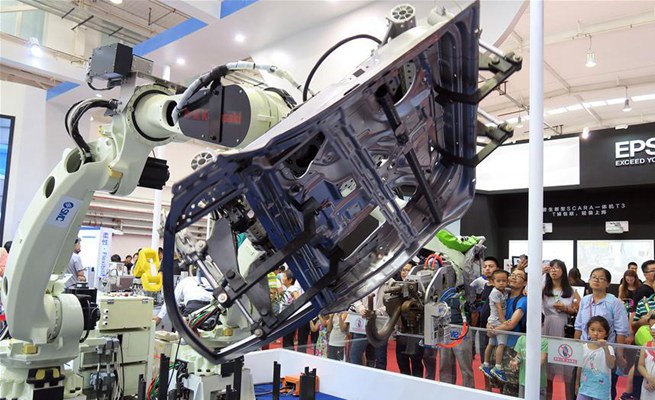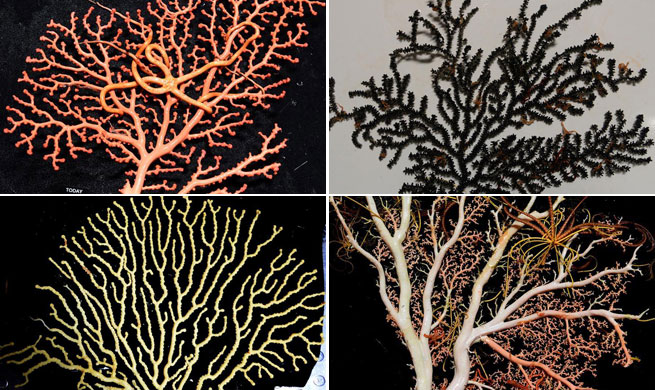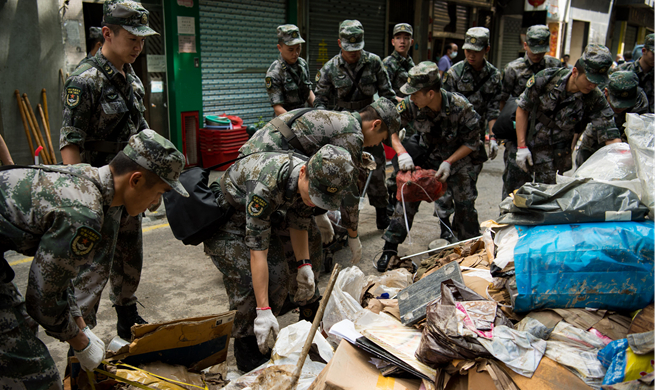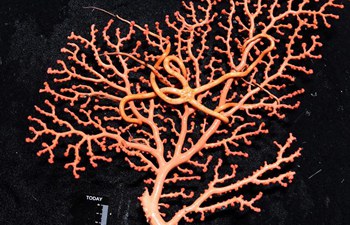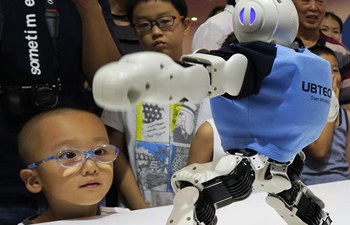by Xinhua writer Wang Chenxi
MACAO, Aug. 26 (Xinhua) -- The second night after typhoon Hato struck Macao on Wednesday, the rumbling districts in the west coast of Macao peninsular became quiet again as residents all fell asleep after one day's work in cleaning up the mess in the streets.
But soldiers from the People's Liberation Army (PLA) Garrison in Macao Special Administrative Region (SAR) still waved their shovels and lifted heavy wastes in zigzagging alleys.
Due to the narrow streets and high buildings along the way, the army could not mobilize heavy machinery or helicopters to do the work. The troops have to use shovels and brooms with their sweating hands.
After working from 9:45 a.m. to 7 p.m. Friday to help locals clean the flooded grounds and remove rubbish left by typhoon Hato, some 1,000 PLA troops returned to their base for a meal and a short sleep and then came back at 4 a.m. Saturday to continue their mission.
The mobilization, the PLA's first disaster relief operation in the SAR, was at the request of the Macao SAR government and under the approval of China's central government in accordance with the Basic Law of the Macao SAR and the Garrison Law of the Macao SAR.
In the October Fifth Street in the old town, piles of rubbish and flooded wastes, such as ruined furniture and sundries, were stuck in corners. They are too heavy and big for locals to move them away.
What's worse is the stink emitted from the rubbish in such a hot and damp weather. A close inhale of it would make people throw up.
Despite all these, the young soldiers pulled or carried them out piece by piece and loaded them onto trucks.
After the street was gradually cleaned up, two women soldiers used liquid sprayers to sterilize the ground to prevent potential outbreak of plague.
They moved and worked fast, yet the whole team made up of about 30 soldiers kept everything quiet as they did not want to disturb locals in sleep.
Senior Colonel Chen Zhaoyang of the PLA Macao Garrison who is in charge of the mission said that the soldiers need to be swift considering the fact that the cleaning-up would slow down the traffic during the day and a new typhoon is coming.
"We must finish the job before the next typhoon comes," he added.
A few hours later, the entire October Fifth Street faced turned on a new look from a day ago.
Some soldiers sat by walls for a short break in shift. Others swept away foul water, dirt and small trash pieces down the drainage.
When Ms. Lam, a lady in her 60s, woke up in the morning and went on her way to the market, she was surprised that how quick the flooded street became tidy and clean again.
"They are just at the age of my younger son. Look at them, they are the real army of our people," she said.
Ms. Jiang, a Macao resident, told Xinhua that her Wechat was "spammed" by news about PLA troops' relief efforts.
"Bingo! The PLA is the strong backup force of the motherland," she said.
In addition to the cleaning-up at the October Fifth Street, another PLA contingent was dispatched to the Taipa Central Park in Macao's Taipa Island to clean the uprooted trees and broken crotches as well as shattered window glasses and fragments of building walls.
Many Macao locals were moved by the hard labor of the young soldiers who sweat all over in the scorching sun and offered some bottled water, fruits and meals to the soldiers to express their gratitude.
Yet the PLA soldiers did not take anything from the locals, which, according to an army official, is the military order, but thanked them for their kindness.
On the internet, a 12-year-old Macao calligraphy talent, wrote three rolls for the PLA troops, which said "When we saw the PLA, we saw hope." "Macao is rescued. Pay salute to the PLA."
He wrote Guan Seng Lok, Aug. 25, 2017 at the end of his work.





